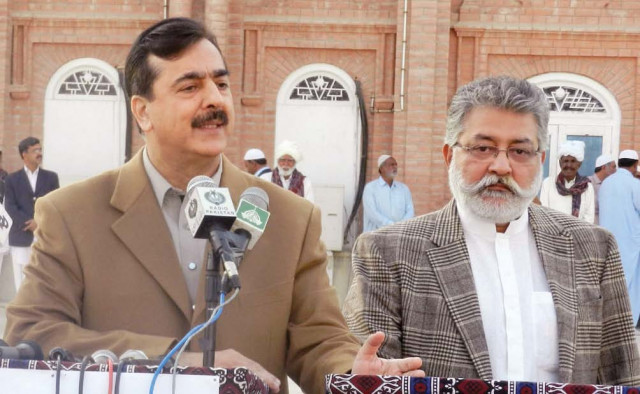Parliament to decide about NATO supply route resumption: Gilani
Consensus will be built among political parties on issue of NATO supply, says Gilani.

Speaking to the media at Chaklala airbase before departing for a four-day visit to Seoul, South Korea to attend second Nuclear Security Summit (NSS) on 26-27 March, he said that the government itself took the decision to block Nato supply, vacating the Shamsi airbase and boycotting the Bonn Conference.
He added that these steps were “not taken on the demand of the opposition”.
“On the very first day, in the meeting of the Defence Committee of the Cabinet (DCC), we had decided to close the Nato supply routes and the government should at least be credited for this,” he said.
Responding to another question, he said that the recent statements of the opposition made it evident that the government never bulldozed proceedings in the parliament. “Why do they think that we will bulldoze the proceedings?” he questioned.
The premier said that the government had been taking the opposition along in the parliament on the matters of legislation and parliamentary proceedings. “Whenever amendments were made in the Constitution and resolutions were adopted, our objective was to build consensus.”
He said all the parties had representation in the Parliamentary Committee on National Security (PCNS). “The recommendations of the committee on foreign policy were not only of the government but the members of the opposition also put their signatures on them,” he said.
Gilani said Pakistan wants civil nuclear technology to meet its energy requirements. Foreign Minister Hina Rabbani Khar and Pakistan's Ambassador to United States Sherry Rehman are accompanying Gilani.
Prime Minister Gilani said, “Civil nuclear technology has been our requirement and we have been demanding it.” He said that the nuclear technology was important for Pakistan to maintain balance with India and to promote regional stability.
“If we do not have balance with India, then there will be lack of stability in the region,” he added.
Gilani said the NSS will be a follow-up of the first summit held in Washington in 2010. He said during the NSS, he will exchange views with world leaders and the talks will focus on strengthening security of nuclear assets.
He said Pakistan has 40 years experience of using the nuclear technology and it has an effective command and control system for the safety of its nuclear assets. “This security system is beyond any doubt and is well protected.”
Gilani said he will meet with United States President Barack Obama on the sidelines of the summit and discuss the situation in Afghanistan.



















COMMENTS
Comments are moderated and generally will be posted if they are on-topic and not abusive.
For more information, please see our Comments FAQ